UK universities urged to end drugs zero tolerance and focus on harm reduction
UK universities are being urged to ditch a zero-tolerance approach to drug use and focus instead on public health and harm reduction, with drug testing and non-judgmental support for students seeking help.
The warning came as new research found students are less likely to use drugs than those of the same age group in the general population. Of the minority that do, more than two out of five would like to reduce their use.
Experts remain concerned that a zero-tolerance approach still deployed on some campuses, including fines, suspensions and expulsions, does little to reduce drug use and could deter students from coming forward for help.
Almost one in five (18%) out of 4,000 students who took part in a poll for Universities UK (UUK) – the organisation that represents 142 higher education providers – told researchers they had used drugs in the past, while one in eight (12%) had used drugs in the past year.
Of those who had ever taken drugs, the most commonly used in the past year were cannabis (53%), cocaine (8%), prescription drugs (7%), ketamine (6%) and ecstasy (4%).
Among non-students, almost 18% of 16- to 24-year-olds in England and Wales reported drug use in the year up to March 2023, according to the Office for National Statistics, while in Scotland, 23.5% of the same age group had used drugs in the year prior to being surveyed.
According to UUK, only one in five students who have used drugs in the past 12 months have asked for support from their institution. Of those students who did seek support, nearly half (46%) said their university’s drug policy was a barrier, while more than a third (37%) feared the consequences of coming forward.
Jeni Larmour, 18, of Newtownhamilton in Northern Ireland, died in October 2020 on her first day at Newcastle University after consuming a lethal combination of alcohol and ketamine given to her “by another”, according to a coroner.
Her mother, Sandra Larmour, welcomed the report and said her own views on drug policy had changed. Where once she might have backed zero tolerance, she now favours educating and supporting students, though she said universities should never condone drug use.
“If you tell a bunch of teenagers ‘don’t do something’, you’re on a hiding to nothing. Anybody that’s got children knows that – they’re going to go out and do it,” Larmour said.
“But if you’re doing something in an open and informed manner, that can only help. If you’ve got people there with insight, knowledge and professional experience that can give them guidance on it, and they feel they can come forward, that’s a very positive step.”
The SafeCourse charity, which was set up to promote harm reduction policies on UK campuses, welcomed UUK’s new framework for action. Its founder, Hilton Mervis, whose son Daniel died of an accidental overdose, said a zero-tolerance approach may have discouraged him from seeking help because of fear of expulsion.
“Drugs left a hole in my family’s life because Daniel was failed by zero-tolerance policies,” he said, adding that the college now has a “clear harm reduction policy which puts the safety and wellbeing of their students first.
“Yet many universities continue to declare zero tolerance on drugs. In practice, this means zero action. This puts students at risk. The time has come for universities to adopt active, student-led harm reduction approaches.”
The UUK report, Enabling student health and success: tackling supply and demand for drugs and improving harm reduction, published on Tuesday, also calls on universities to promote and inform students of drug checking services. “Students often do not know the contents and strength of illicit drugs at the point of purchase,” it says.
“The consequences of this can be fatal. Drug checking provides an independent service which encourages students to have any substances of concern tested by chemists, and the results discussed during a consultation with a health professional.”
It also suggests a sliding scale of warnings of increasing severity for repeat incidents over an agreed timeframe to ensure a university is not perceived as permissive about the use of drugs.
Larmour urged parents whose children are preparing to go off to university in the autumn to talk to their child. “Make sure that you’re open and honest with them.” To youngsters about to leave home, she said: “Be aware of your surroundings. Be aware of who your friends are. Think before you do anything.
“I miss Jeni every day of my life. I think about her all the time. Everything I do, I do it for one reason. That’s to keep her name alive, to keep her name on people’s lips, to keep her memory alive.”










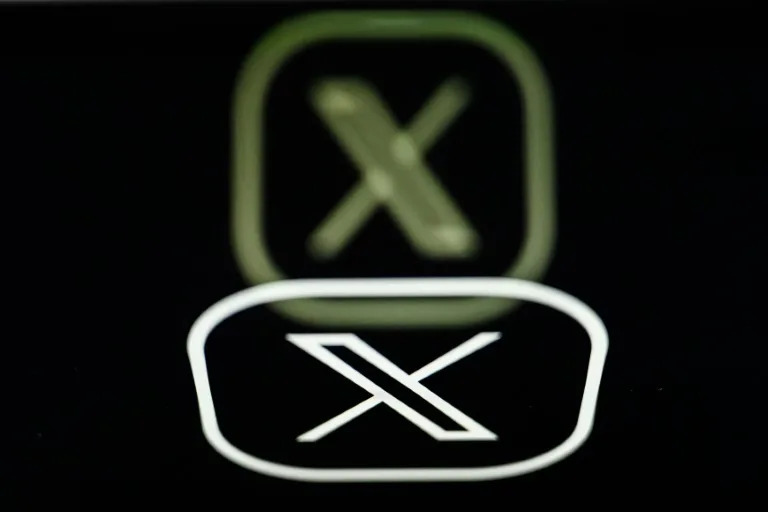

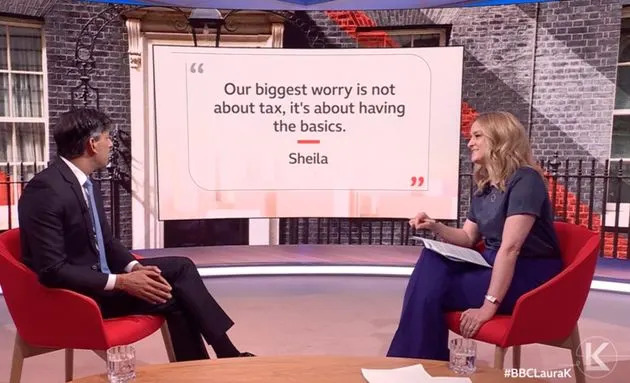
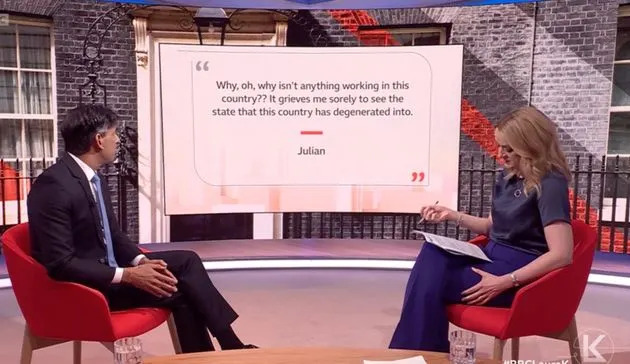
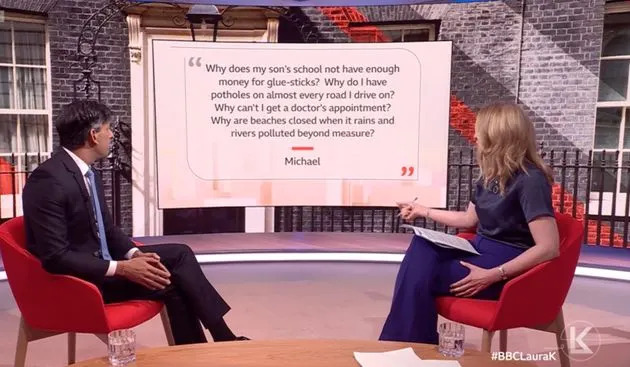
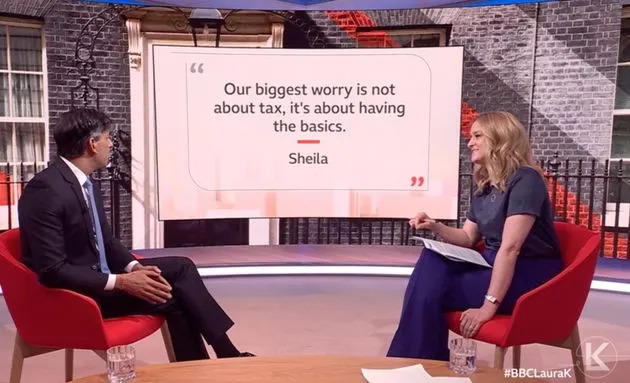
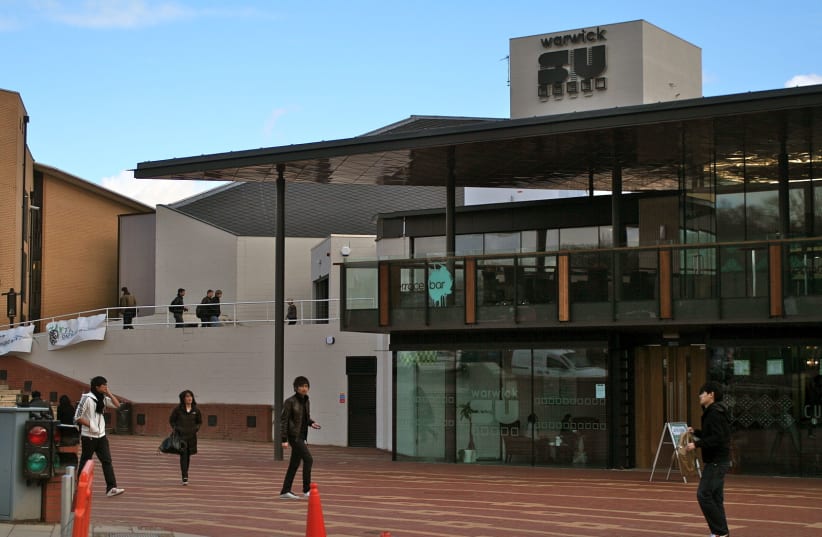
.gif)



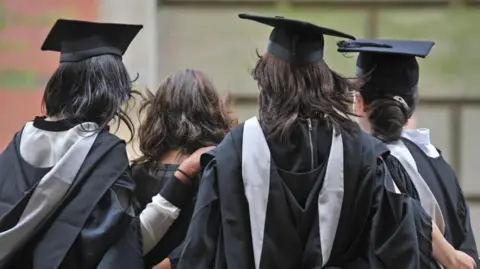
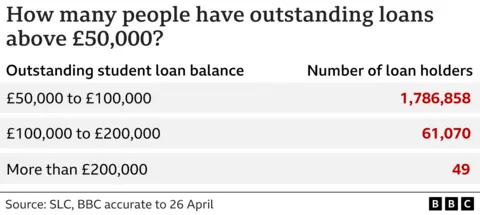
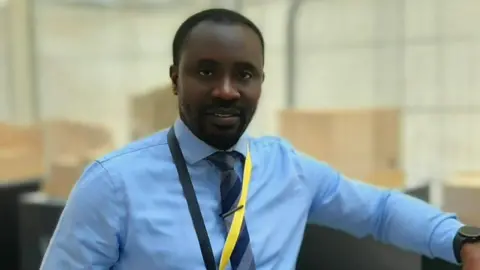

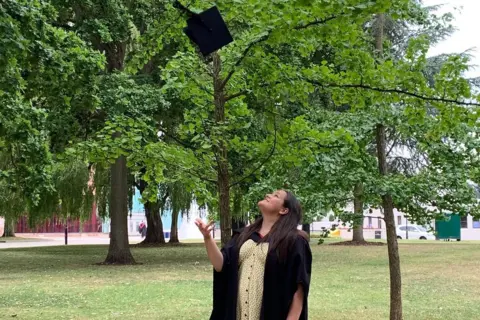 Abbie Tutt
Abbie Tutt